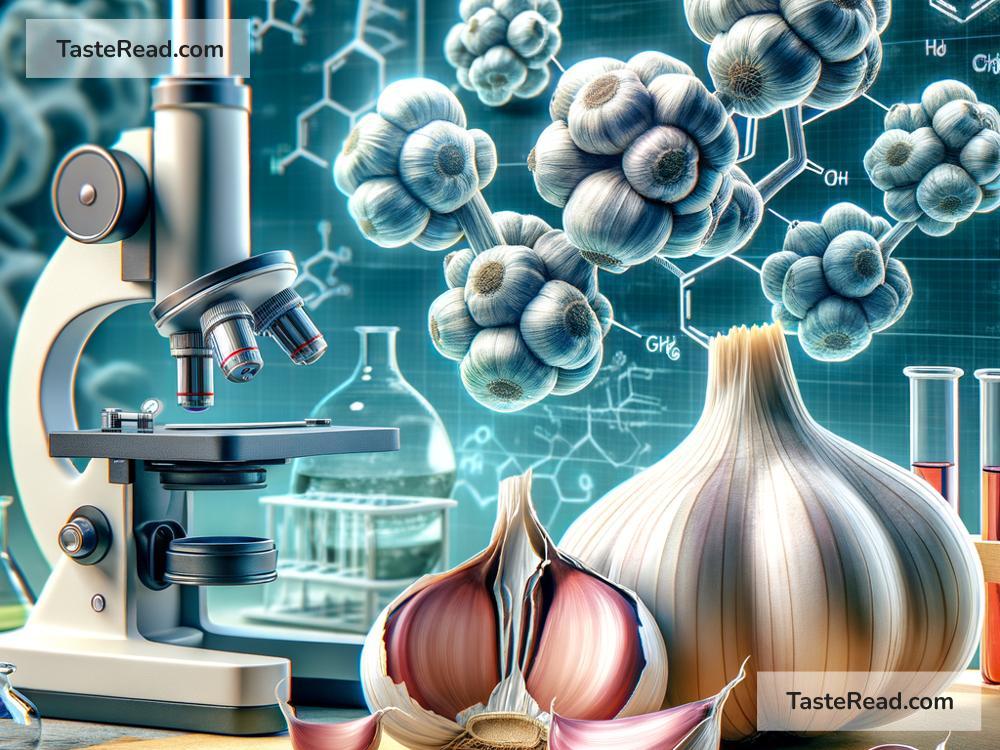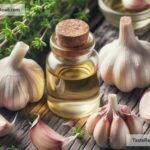Garlic Compounds in Cancer Prevention Therapies
Garlic has been used for centuries in cooking and traditional medicine, making it one of the healthiest and most versatile foods on the planet. Known for its strong flavor and powerful aroma, garlic is much more than just a kitchen staple — it’s also an unsung hero in scientific research. Over the years, scientists have discovered that garlic contains compounds that may help fight cancer and prevent this deadly disease.
In this blog post, we’ll break down how garlic works in cancer prevention therapies, focusing on its active compounds and their mechanisms in simple and easy-to-understand terms. Let’s dig deeper into the science behind this incredible vegetable!
The Power of Garlic: What Makes It Special?
Garlic contains a variety of beneficial nutrients, including vitamins, minerals, and antioxidants. However, what’s truly fascinating about garlic is its sulfur-containing compounds, which are responsible for its health benefits. When garlic is chopped, crushed, or chewed, these compounds become activated and start working in your body.
The most well-known compound in garlic is allicin, but there are others like diallyl sulfide, diallyl disulfide, and ajoene that also play a role in its medicinal properties. These compounds have been studied for their ability to support the immune system, reduce inflammation, and even target cancer cells.
How Garlic Works in Cancer Prevention
Cancer occurs when cells in the body grow uncontrollably and form tumors. While scientists are still working hard to understand why this happens, studies have shown that garlic can help reduce the risk of cancer in several ways. Here’s how:
-
Anti-inflammatory Effects
Inflammation is one of the root causes of cancer. When the body is persistently inflamed, it can lead to damage in cells and tissues, increasing the chances of cancer development. Garlic compounds help reduce inflammation by suppressing harmful molecules that cause it. A lower level of inflammation means a lower risk of cancer starting or spreading. -
Antioxidant Protection
Garlic is rich in antioxidants, which are substances that protect the body against damage caused by free radicals. Free radicals are unstable molecules that can harm cells and DNA, leading to mutations and cancer. Garlic’s antioxidants neutralize these free radicals, keeping your cells safe and healthy. -
Stopping Cancer Cell Growth
One of garlic’s most fascinating abilities is its potential to slow down or stop cancer cell growth. Studies have shown that sulfur compounds in garlic can interfere with the processes that allow cancer cells to multiply. Some compounds cause cancer cells to die in a process called apoptosis, which is essentially programmed cell death. -
Preventing Tumors from Forming
Garlic compounds also play a role in preventing the formation of new blood vessels that feed tumors. Without a supply of nutrients and oxygen, tumors struggle to grow and spread. Researchers believe this property can be particularly helpful in aggressive cancers that rely on new blood vessels to survive. -
Detoxifying Harmful Chemicals
Certain chemicals in food, the environment, or tobacco smoke can trigger cancer. Garlic helps the body detoxify harmful chemicals by activating enzymes in the liver that break down toxins. By doing this, garlic reduces the risk of chemical-induced cancers, such as lung and liver cancer.
What Does the Research Say?
Numerous studies have looked into garlic’s role in cancer prevention. For example, research shows that people who eat more garlic have a lower risk of certain cancers, including stomach, colon, breast, and prostate cancer. Laboratory studies have also confirmed that garlic extracts can kill cancer cells or slow their growth.
Animal studies offer further evidence. When scientists gave garlic compounds to rats or mice, they noticed a significant reduction in tumor size and cancer progression. While these results are promising, human studies are still ongoing to determine the best way to use garlic in therapies.
Should You Eat Garlic Every Day?
The idea of garlic fighting cancer might make you want to start eating it by the handful. While garlic is healthy, balance is key. Eating too much raw garlic can irritate your stomach and cause digestive problems. Instead, try adding garlic to meals, sauces, or soups to enjoy its benefits.
For people who don’t enjoy the strong taste of garlic, supplements such as garlic pills or extracts are available. However, it’s important to consult your doctor before taking any supplements, especially if you’re already undergoing treatment for cancer or have a medical condition.
The Future of Garlic in Cancer Therapies
Garlic-based compounds have great potential as part of cancer prevention and treatment strategies. Scientists are working on creating drugs and therapies that mimic the effects of garlic. While we’re not yet at the point where garlic alone can cure cancer, it’s clear that this humble vegetable is a powerful ally in the fight against this disease.
Conclusion
Garlic might be small, but its health benefits are enormous. From reducing inflammation to killing cancer cells, garlic’s sulfur compounds are like tiny warriors protecting your body from harm. While more research is needed, garlic remains a natural and accessible option to lower your cancer risk and boost your overall well-being.
So, the next time you cook, don’t forget to add a clove or two of garlic to your meal. A simple choice in the kitchen might make a big difference in your health!


